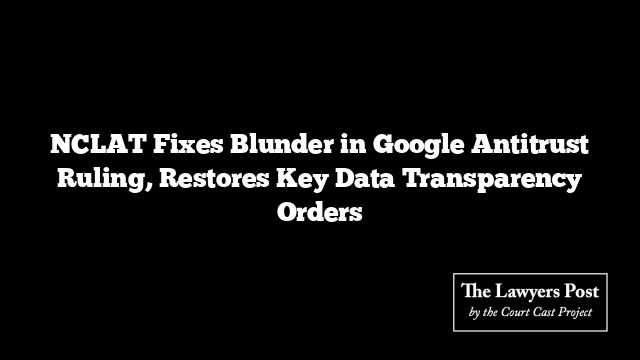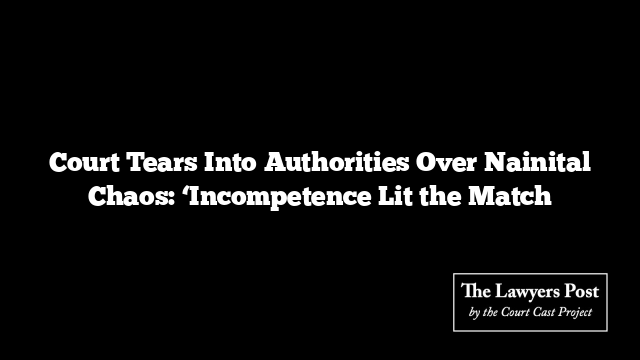In a dramatic turn in India’s tech-regulation saga, the National Company Law Appellate Tribunal (NCLAT) has issued a corrective order in its high-stakes face-off involving Google and the Competition Commission of India (CCI), quietly overturning a misstep in its earlier ruling.
The tribunal clarified this week that two major directives aimed at curbing Google’s data dominance — those mandating transparency in how the tech giant collects, uses, and shares data, and prohibiting it from exploiting app data to boost its own products — were in fact upheld, not struck down as it had erroneously stated in its March judgment.
This correction came after the CCI spotted the inconsistency: the body of the earlier ruling had clearly supported the directions, but the final operative paragraph had mistakenly scrapped them. The NCLAT has now amended that paragraph, bringing its formal conclusion in line with the rest of its reasoning.
Here’s what those two directives say:
- 395.4 requires Google to clearly disclose its data collection policies, how it uses user and developer data, and if (and how) it shares such data with others.
- 395.5 bars Google from using consumer or transaction data from its Play Billing System to gain an unfair edge, while also requiring it to give developers access to their app-generated data — with appropriate safeguards.
Google, through its legal team, argued that the CCI’s request for correction was actually a backdoor attempt at revisiting the verdict. NCLAT didn’t bite. It ruled this wasn’t a review, just a fix to a factual error — the kind courts are well within their rights to make.
The roots of the case stretch back to 2020, when CCI launched an investigation into Google’s alleged strong-arming of app developers into using its proprietary billing system. By 2022, the regulator found Google’s practices to be anti-competitive, slapped it with a fine of ₹936.44 crore, and ordered sweeping remedies. Google appealed — and in March 2025, the NCLAT largely sided with the CCI, upholding core findings but trimming some of the penalties and remedies.
Here’s what stands upheld after NCLAT’s revisions:
- Google’s mandatory use of its Play Billing System was anti-competitive.
- It leveraged its app store and Android OS dominance to unfairly promote Google Pay.
- The CCI correctly identified the relevant markets: Android app stores, licensable mobile OS, and UPI-based payment apps.
- A data-driven effect-based analysis backed CCI’s conclusions.
- Google must allow third-party billing.
- Transparency in data handling and the non-exploitation of developer data remain enforceable.
- The penalty was valid in principle but recalculated based on revenue from the Play Store alone, slashing the fine to ₹216.69 crore.
What was struck down:
- Allegations of discriminatory pricing via YouTube’s lower fees lacked sufficient evidence.
- Claims that Google stifled technical development didn’t stick.
- No proof was found that Google denied market access — especially since Google Pay’s UPI share was under 1%.
- Preventive orders based purely on Google’s “gatekeeper” status were ruled to be beyond the CCI’s legal powers.
- The method used to calculate the fine — based on Google’s global turnover — was ruled inappropriate for the case.
With this correction, the spotlight is firmly back on Google’s data practices. It’s not just about billing systems or market definitions anymore — it’s about how much power is tucked away in the fine print of data policies, and who really gets to use the information flowing through the world’s most-used platforms.





